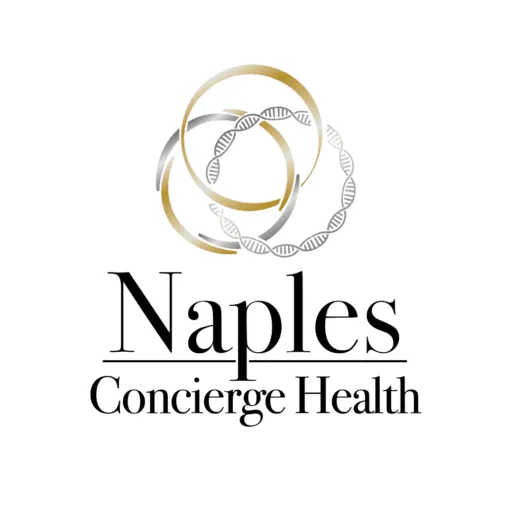Heart disease is often thought of as a condition that primarily affects men, but this misconception has serious consequences for women.
Cardiovascular disease remains the leading cause of death among women worldwide, yet many do not realize they are at risk. Research shows that women aged 45 to 65 who suffer a heart attack are more likely to die within a year than men of the same age.
This disparity is not just due to biological differences but also stems from how heart disease in women is recognized, diagnosed, and treated. Many women experience symptoms that differ from the classic chest pain associated with heart attacks, leading to misdiagnosis or delayed treatment. Furthermore, recovery and long-term care must be tailored to their specific needs.
Understanding these differences is critical. This article explores how heart attack symptoms present differently in women, why they are more likely to be misdiagnosed, and how their recovery process should be approached. Most importantly, we will highlight how Naples Concierge Health provides personalized, expert care to support women through their heart health journey.
How Heart Attack Symptoms Differ in Women
The image of a person clutching their chest in sudden pain is often associated with a heart attack. While this is a common symptom in men, women’s heart attack symptoms are frequently more subtle.
Many do not experience intense chest pain. Instead, they may feel unusually fatigued, short of breath, or experience pain in their jaw, neck, or back.
Unexplained exhaustion can be an early warning sign. Women have reported feeling extremely tired in the days or weeks leading up to a heart attack, even when they have had a full night’s sleep. Shortness of breath can also be a key indicator, particularly if it occurs suddenly and without exertion.
Nausea, vomiting, and dizziness are often mistaken for digestive issues, causing many women to delay seeking medical help. Similarly, discomfort in the jaw, neck, back, or arms is a sign that is often overlooked. Unlike men, who frequently experience central chest pain, women may feel discomfort radiating outward, which can be misinterpreted as muscle strain or stress.
Because these symptoms are not widely recognized, many women dismiss them as minor health issues, leading to dangerous delays in treatment.
A 2024 article in Circulation highlighted that while awareness of female heart attack symptoms has improved, there is still a long way to go in ensuring that women receive timely and appropriate care.
Early detection is key, and understanding these symptoms can empower women to take control of their heart health.
The Gender Gap in Diagnosis and Treatment
Even when women recognize that something is wrong and seek medical attention, they often face another major challenge: misdiagnosis or delayed treatment.
Women are more likely than men to have their symptoms dismissed as stress, anxiety, or a non-cardiac condition. This results in them being sent home from the emergency room without receiving the life-saving care they need.
Medical research has traditionally focused on men’s heart health, leading to diagnostic tools and treatment protocols that do not always account for the way heart disease presents in women.
Standard heart attack tests, such as electrocardiograms (ECGs) and blood tests, may not always detect a heart attack in women, particularly if their symptoms are not textbook examples.
As a result, some women are sent home without a diagnosis, only to suffer a more severe cardiac event later.
Treatment disparities also play a role. Even when women are correctly diagnosed, they are less likely than men to receive interventions such as angioplasty, stents, or medications that can help prevent future heart attacks.
A 2020 study published in The American Heart Association Journal found that women who experience heart attacks are treated less aggressively than men, highlighting the need for greater awareness and gender-specific care.
Women must be proactive about their heart health. If symptoms do not feel right, it is crucial to insist on further evaluation. Seeking a second opinion and advocating for additional testing can make all the difference in receiving timely and appropriate treatment.
Recovery and Long-Term Care for Women
Recovering from a heart attack is not just about physical healing—it also involves managing stress, adjusting to new lifestyle changes, and addressing mental health concerns. Women often experience higher levels of anxiety and depression following a heart attack compared to men, making emotional support an essential part of their recovery.
Cardiac rehabilitation programs provide structured exercise, nutritional guidance, and mental health support, yet women are less likely to enroll in these programs. Participation in cardiac rehab has been shown to improve long-term outcomes significantly, but many women face barriers such as caregiving responsibilities, financial concerns, or a lack of awareness about the benefits of these programs.
Medication responses also vary between men and women. Some of the standard prescriptions given after a heart attack may cause stronger side effects in women or be less effective. This highlights the importance of working with a healthcare provider who understands the unique aspects of women’s heart health and can tailor a recovery plan accordingly.
Making lifestyle changes is essential to long-term heart health. By maintaining a balanced diet, engaging in regular physical activity, quitting smoking, and managing stress effectively, women can take control of their health and reduce the risk of future cardiac events.
Addressing mental health through therapy or support groups can also help women process the emotional impact of a heart attack and feel empowered in their recovery journey.
How Naples Concierge Health Supports Women’s Heart Health
At Naples Concierge Health, we understand that women’s heart health requires a personalized and proactive approach.
Our Health Crisis Support services provide immediate, comprehensive, and compassionate care to women recovering from a cardiac event.
Using a host of health management tools, we monitor recovery progress and coordinate communication between your family, primary care physician, and specialists.
We are your co-pilot in navigating medication management, rehabilitation, and any necessary lifestyle adjustments. Recovery can be a complicated and confusing time, but the team at Naples Concierge Health offers compassionate support and care that meets your unique recovery needs.
We can help establish recovery milestones, helping you stay on track. These milestones, coupled with routine check-ins and coordination with exercise and nutrition experts, allow you to focus on your recovery while we manage the most complicated parts.
Prioritizing Women’s Heart Health
Heart disease in women is often overlooked, but raising awareness about the warning signs, advocating for accurate diagnosis, and prioritizing recovery can help close the gender gap in cardiovascular care.
At Naples Concierge Health, we are committed to ensuring that women receive the heart health support they deserve. Whether through early detection, personalized treatment plans, or post-heart attack recovery care, our team is dedicated to providing expert and compassionate medical guidance.
Take control of your heart health and recovery today. Contact us to learn more.

